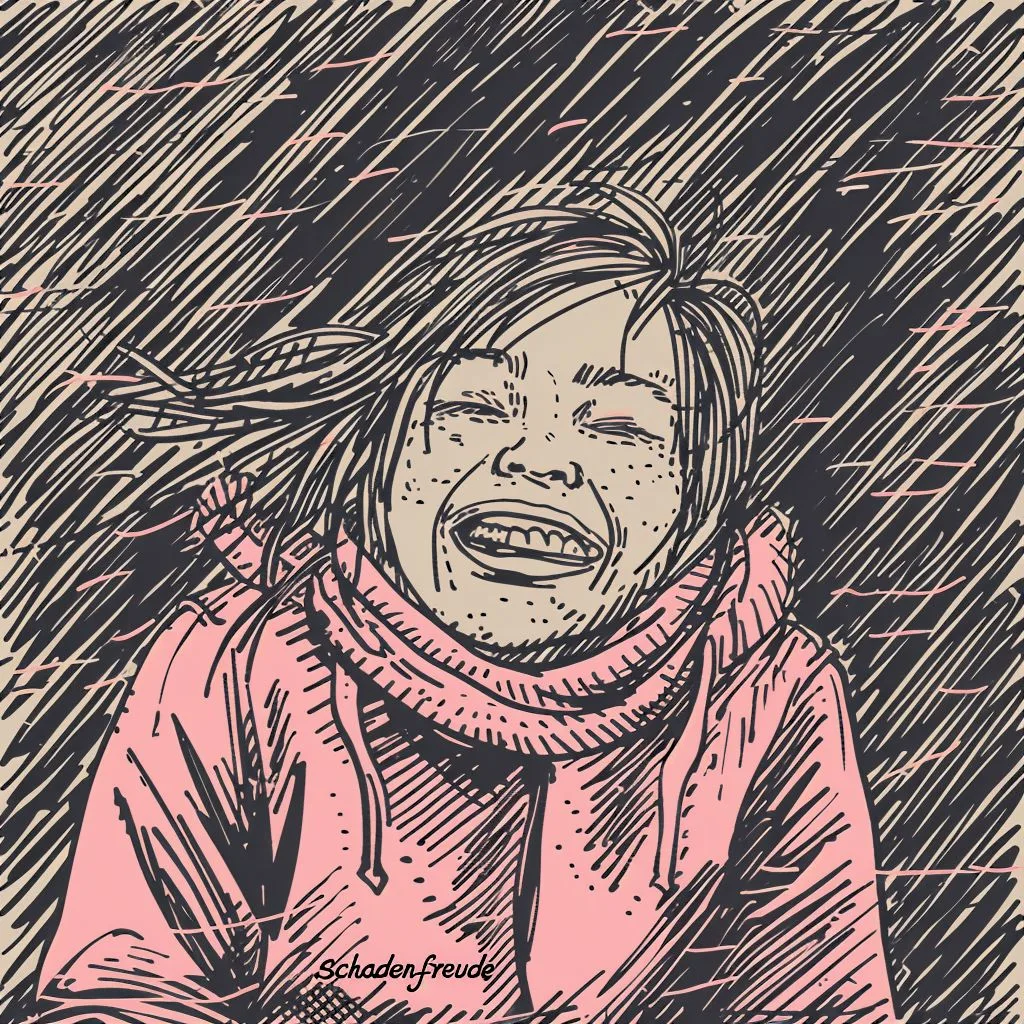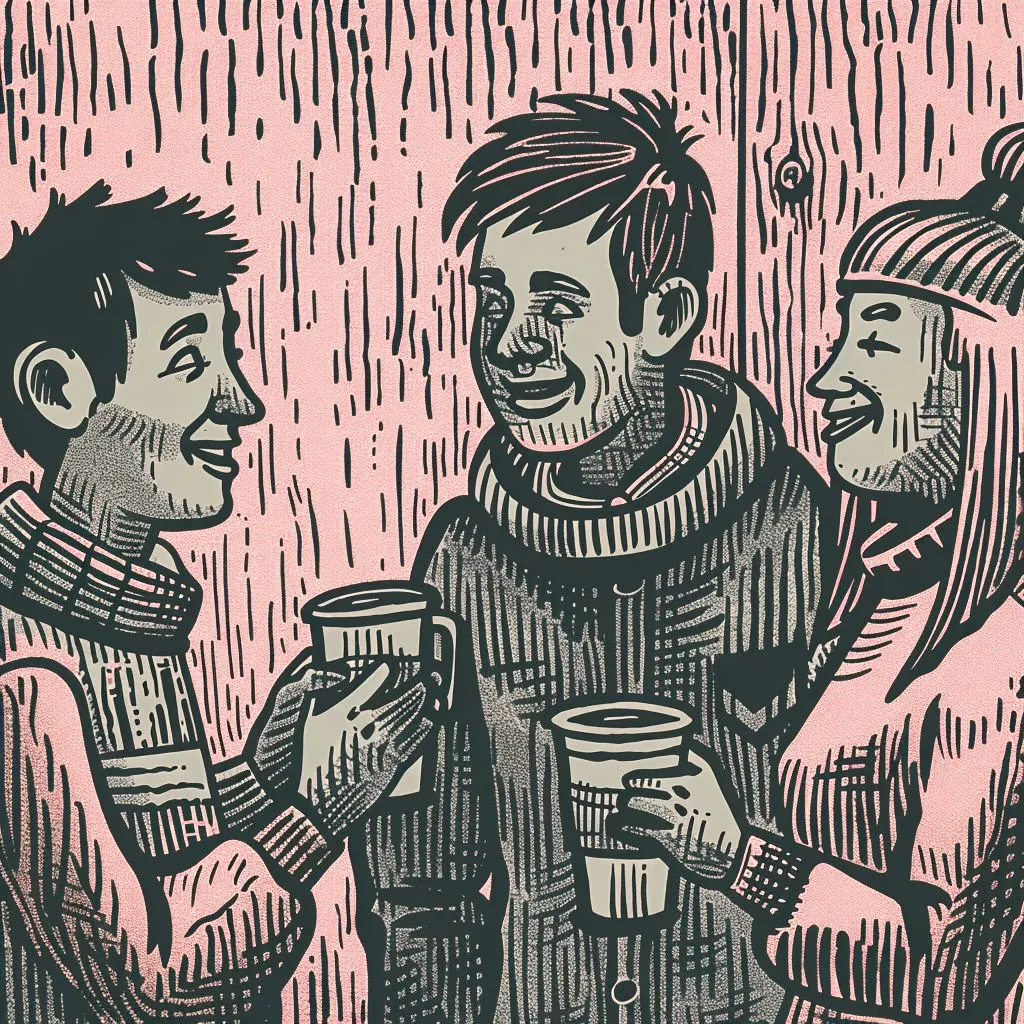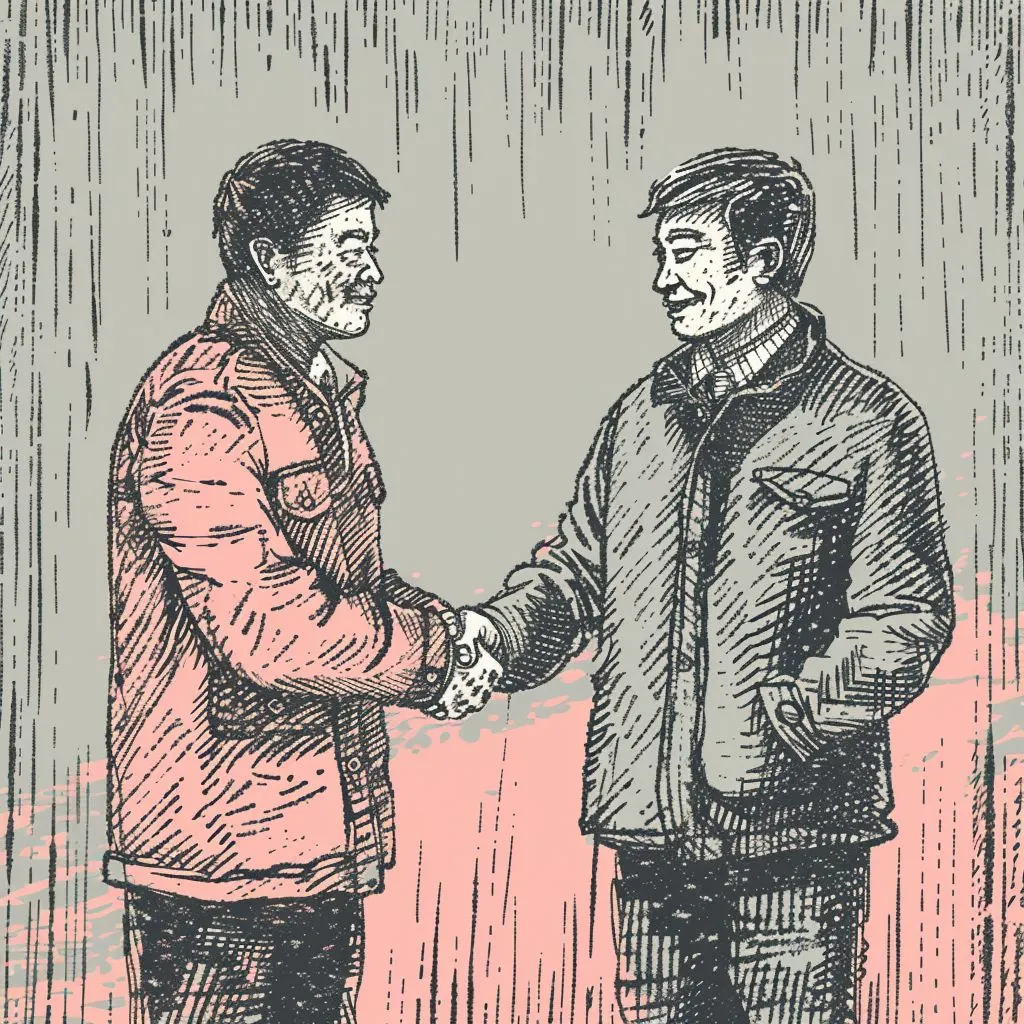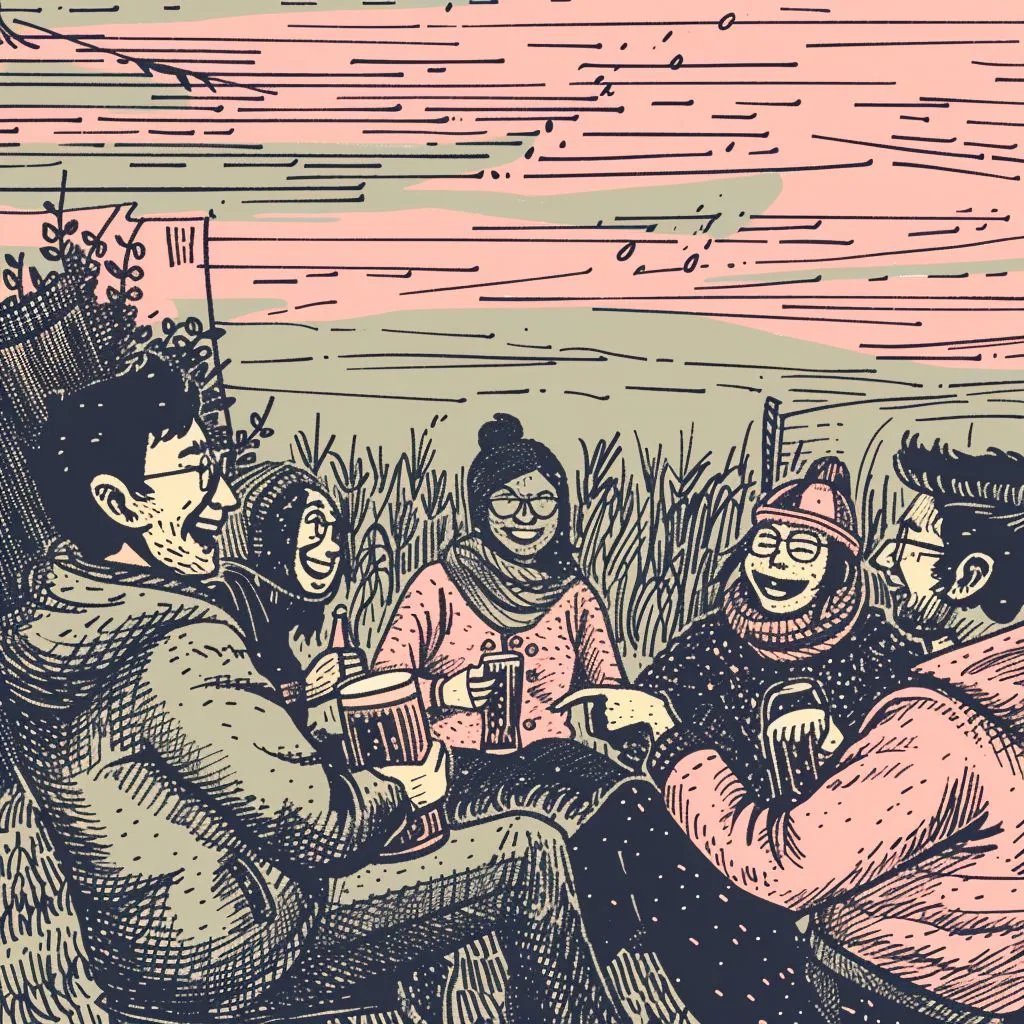Step right up, word wanderers and lexicon explorers! Welcome to the whimsical wonderland of rare words, where the ordinary transforms into the extraordinary, and the mundane takes on a magical hue.
Picture a place where “schadenfreude” and “cafuné” waltz through fields of imagination, where “forelsket” and “peiskos” serenade the senses with their charm, and where “uitwaaien” beckons with promises of fresh air and freedom.
It’s a linguistic carnival of curiosity, where every syllable holds a secret and every phrase a fantastical tale.
So buckle up your dictionaries, polish your linguistic lenses, and prepare to journey through the fantastical landscape of language like never before!
1. Cafuné
Cafuné, a term of Brazilian Portuguese origin, embodies the tender act of running one’s fingers through someone else’s hair in a gesture of affection and comfort.
This word captures more than a simple action; it conveys a sense of intimacy, care, and love, often shared in quiet, personal moments.
In Brazilian culture, cafuné is a cherished form of expressing closeness and tenderness between loved ones, whether between parents and children, friends, or romantic partners.
It signifies a moment of peacefulness and emotional connection, transcending the physical act to touch upon the bonds that tie individuals together.
In the hustle of daily life, such moments of cafuné offer a sanctuary of tranquility and warmth.
The concept of cafuné, while unique to Brazilian Portuguese, resonates with the universal human need for connection, tenderness, and the profound impact of simple acts of affection.
It reminds us of the power of touch and the deep comfort found in the presence of those we love, a testament to the shared human experiences that bind us across cultures and languages.
IPA: /ka.fuˈnɛ/
Sample Sentence: In the soft evening light, her gentle cafuné soothed his worries, weaving a silent promise of enduring support and understanding between them.
2. Schadenfreude
The term “Schadenfreude” originates from two German words, “Schaden,” meaning harm, and “Freude,” meaning joy. It describes the experience of finding joy in someone else’s misfortune.
This complex emotion is unique in its specificity and has no direct equivalent in English, highlighting a particular facet of human psychology that is often considered taboo to acknowledge openly.
Schadenfreude is a nuanced emotion that can range from mild amusement at minor misfortunes to a deeper, more vindictive pleasure in the significant troubles of others.
It is a feeling that is not necessarily malicious; it often arises from a sense of justice being served or seeing someone perceived as arrogant being taken down a peg.
However, it can also stem from envy, competitiveness, or bitterness, revealing the darker sides of human nature.
Psychologists have studied Schadenfreude as part of the broader spectrum of human emotions, examining its roots in self-esteem issues, social comparison, and the inherent competitiveness of human beings.
It is seen as a common, if not universally acknowledged, emotion that plays a role in social interaction and hierarchy dynamics.
The concept of Schadenfreude has also been the subject of philosophical inquiry, with thinkers pondering over the ethical implications of deriving pleasure from another person’s pain.
It raises questions about empathy, morality, and the complexity of human emotions.
Schadenfreude underscores the multifaceted nature of human emotions, reminding us that joy can sometimes be found in unexpected and perhaps uncomfortable places.
IPA: /ˈʃaː.dənˌfʁɔɪ̯.də/
Sample Sentence: As the boastful runner stumbled just before the finish line, Mark couldn’t suppress a twinge of Schadenfreude, remembering all the times he had been on the receiving end of his taunts.
3. Mångata
The term “Mångata” originates from Swedish, eloquently capturing the poetic vision of the moon’s reflection on water, creating a path resembling a road or a river of light across the surface.
This phenomenon occurs when the moon is low on the horizon, and its light reflects off the water, so it appears as a shimmering pathway extending from the observer towards the moon.
The beauty of mångata lies not only in the visual spectacle but also in the word’s ability to evoke a sense of tranquility, reflection, and connection to nature.
In Swedish culture and literature, mångata is often referenced to describe moments of introspection, natural beauty, or a path leading to something unknown or dreamlike.
It symbolizes life’s journey, destiny’s path, or the connection between the mundane and the celestial.
The word encapsulates a specific natural beauty that many may recognize but only the Swedish language can succinctly convey in a single term.
Mångata is a testament to the human desire to find beauty in the natural world and to connect deeply with our surroundings.
It’s a reminder of the serene moments that encourage us to pause, reflect, and look beyond our immediate reality toward something more profound.
IPA: /ˈmoːŋˌɡɑː.ta/
Sample Sentence: Standing alone on the quiet lakeshore, she gazed at the mångata, its silvery path a comforting guide through the night, reminding her that in every ending, there’s a path leading to new beginnings.
4. Forelsket
Forelsket is a Norwegian term that beautifully captures the exhilarating feeling one experiences when falling in love.
Unlike the English phrase “falling in love,” which can imply a process, forelsket describes an acute, almost overwhelming sensation of being in love in the present moment.It embodies the intoxicating mix of euphoria, nervousness, and the sense of incredible possibility that marks the initial stages of romantic affection.
This word reflects the profound impact of love on one’s state of mind, encapsulating the joy, anticipation, and sense of magic that accompanies the realization of growing feelings for another person.
Forelsket speaks to the universal experience of love’s budding moments, offering a linguistic window into the heart’s capacity to feel deeply and passionately.
It is a reminder of love’s power to transform the ordinary into the extraordinary, to make us feel connected to something greater than ourselves, and to see the world through a lens of wonder and optimism.
In a culture that values deep emotional experiences, forelsket serves as a testament to the beauty of human emotions and the unforgettable journey of falling in love.
IPA: /fɔˈɾɛlskət/
Sample Sentence: Under the shimmering aurora, they shared a moment so full of forelsket that the world around them seemed to pause, acknowledging the birth of a new love.
5. Sisu
Sisu is a Finnish term that doesn’t have a direct translation in many languages, yet it conveys a profound concept integral to Finnish culture.
It represents a blend of courage, resilience, grit, and determination. Sisu is about possessing the tenacity to face challenges head-on, endure significant hardships, and keep pushing forward when a situation seems beyond one’s capacity to handle.
It’s not just about surviving; it’s about prevailing with a sense of fortitude and an indomitable spirit.
This concept is deeply embedded in Finnish identity and offers insight into the national character, known for perseverance in adversity.
More than just a word, sisu is a lifestyle and a philosophy that encourages individuals to push beyond their perceived limitations, to not only confront challenges but to overcome them with honor and inner strength.
It’s a quality that is both admired and aspired to, a reminder that beyond physical endurance, the human spirit possesses an incredible capacity to persevere.
In Finland, sisu is seen as a universal capacity, something that can be cultivated and nurtured. It transcends personal achievement to reflect collective resilience.
IPA: /ˈsiː.su/
Sample Sentence: In the darkest hours of the winter storm, their sisu guided them through, an invisible force ensuring their survival and triumph over the elements.
6. Gökotta
Gökotta is a uniquely Swedish word that describes the act of waking up early in the morning to go outside and hear the first birds sing.
It encapsulates a practice deeply rooted in Swedish culture, highlighting a profound appreciation for nature, tranquility, and the beauty of the early morning.
Gökotta is not just about enjoying birdsong; it’s an invitation to connect with nature at its most serene, to embrace stillness, and to find peace in the simplicity of the moment.
This word reflects the Swedish love for the outdoors and the value placed on finding harmony with the natural world.
Engaging in gökotta is more than a mere activity; it is a celebration of life’s serene moments and a testament to the restorative power of nature.
It encourages a mindfulness that can often be lost in the hustle of daily life, offering a momentary retreat to reflect, rejuvenate, and appreciate the unspoiled beauty of the world.
This practice embodies a universal yearning for connection with nature, providing a path to inner calm and grounding in an ever-busy world.
IPA: /jœˈkɔtːa/
Sample Sentence: “On the first light of dawn, she practiced gökotta, a ritual that renewed her spirit with the pure melodies of the forest, reminding her of the world’s simple wonders.”
7. Fika
Fika is a concept deeply ingrained in Swedish culture, representing much more than a mere coffee break.
It’s a cherished tradition, a deliberate moment out of the day to pause, reflect, and enjoy a cup of coffee or tea accompanied by pastries or sandwiches. However, fika is not just about the food and drink; it’s a social ritual that emphasizes the importance of taking a break to connect with others, to chat, and to strengthen bonds among colleagues, friends, and family.
It embodies the Swedish approach to everyday life, where balance, well-being, and community are valued over the constant rush of productivity.
Fika serves as a testament to the Swedish ethos of lagom, meaning “just the right amount,” promoting moderation and balance.
It’s a practice that encourages people to slow down, appreciate the good things in life, and nurture relationships in a relaxed setting.
This daily ritual is so integral to Swedish life that it transcends being a mere ‘coffee break’ – it’s a cultural institution, a testament to the value placed on social connections, mental health, and taking joy in life’s simpler moments.
IPA: /ˈfiːka/
Sample Sentence: During the afternoon fika, the bustling office transformed into a warm gathering, where laughter and stories flowed as freely as the coffee, knitting the team closer together.
8. Guan Xi
Guān xì, a term deeply rooted in Chinese culture, refers to complex relationships and connections that facilitate personal and business interactions.
It goes beyond mere networking; guān xì is about building and maintaining long-term relationships based on mutual trust, respect, and understanding. This concept underscores the importance of personal bonds in achieving success and navigating the social and business landscapes in China.
It’s an acknowledgment that who you know can be as crucial as what you know, reflecting a cultural emphasis on interpersonal harmony and community.
Guān xì is not simply a method of conducting business; it’s a fundamental aspect of social life, influencing everything from career advancement to securing everyday services.
This intricate web of relationships emphasizes reciprocal obligations, loyalty, and the social currency of face (miànzi), which involves maintaining one’s reputation and social standing.
In a society where collective interests often precede individual desires, guān xì serves as a vital navigational tool, ensuring harmony and mutual benefit within the community fabric.
IPA: /ɡwan˧˥ ɕi˥˩/
Sample Sentence: In navigating the complexities of the Chinese market, he quickly learned that guān xì was the cornerstone of business conduct, where agreements were often sealed on the strength of personal connections rather than formal contracts.
9. Tretår
The term “tretar” finds its roots in the Swedish coffee culture, symbolizing the tradition of having a third refill or a “third round” of coffee.
While not as internationally recognized as fika, tretar is another testament to Sweden’s love for coffee and the social rituals that surround its consumption. It extends the fika tradition, emphasizing not just the pause and enjoyment of coffee itself but the value of the time spent in company, conversation, and relaxation.
Tretar is about prolonging the pleasure of the moment, savoring the warmth of both the drink and the companionship.
This practice underscores the Swedish approach to life, where balance and well-being are paramount.
It’s a reflection of a culture that prioritizes not just productivity but also the quality of life, where such moments of leisure and social interaction are deemed essential for a well-rounded life.
Tretar, much like fika, embodies a holistic approach to daily living, where the simple act of sharing coffee becomes a deliberate pause to reconnect, reflect, and recharge in the midst of life’s demands.
IPA: /ˈtreːˌtoːr/
Sample Sentence: After the second cup, they decided to indulge in a tretar, prolonging their afternoon break into an extended session of camaraderie and storytelling, surrounded by the comforting aroma of coffee.
10. Hanyauku
Hanyauku is a term from the Rukwangali language, spoken by people in Namibia and parts of Angola, which captures the act of walking on tiptoes across hot sand.
This word not only describes a physical action but also evokes the broader experience of navigating challenging or uncomfortable environments with care and agility. Hanyauku reflects an intimate connection with the natural world, illustrating the adaptability and resourcefulness required to live in harmony with the earth’s elements.
Sample Sentence: “As the noon sun scorched the desert, they practiced hanyauku, a dance of shadows and light, tiptoeing gracefully across the burning sands, in tune with the ancient rhythms of the land.”
This concept is deeply embedded in the cultural practices and knowledge of communities that have long adapted to their environment.
It’s a testament to the nuanced understanding of the natural world, where the wisdom of ancestors is passed down through generations, enabling people to thrive in landscapes that might appear inhospitable.
Hanyauku is more than just a way of walking; it’s a symbol of resilience, a deep-seated respect for nature, and a celebration of the human spirit’s capacity to adapt and flourish.
IPA: (Missing for the moment)
Sample Sentence: As the noon sun scorched the desert, they practiced hanyauku, a dance of shadows and light, tiptoeing gracefully across the burning sands, in tune with the ancient rhythms of the land.
11. Meriggiare
Meriggiare is an Italian verb that beautifully encapsulates the act of taking shelter from the heat of the midday sun, often by resting in the shade.
This word conveys more than just a physical action; it embodies a lifestyle of leisure and appreciation for the rhythm of the day, reflecting a Mediterranean ethos where life slows down to embrace the moment. Meriggiare suggests a pause in the day’s activities to seek refuge from the sun’s intensity, offering a moment of stillness, reflection, or conviviality with others.
In cultures where the climate dictates the pace of life, meriggiare is a testament to adapting to the natural world, honoring the body’s need for rest, and the soul’s for tranquility.
It’s a reminder of the joy found in simple pleasures and the importance of taking time to recharge, both physically and mentally.
This practice celebrates the beauty of community and the intimacy of shared moments, reinforcing the value of connection to both nature and each other in the fabric of daily life.
IPA: /meridʒˈdʒa.re/
Sample Sentence: As the village streets emptied and the cicadas sang their midday chorus, they found solace in meriggiare, sharing stories and laughter under the cool canopy of an ancient olive tree.
12. Utepils
Utepils is a cherished Norwegian term that literally translates to “outdoor beer.”
It encapsulates the tradition of enjoying a beer outside, especially after the long, dark winter, marking the arrival of warmer, sunnier days. Utepils is not just about the act of drinking; it’s a celebration of nature, the changing seasons, and the Norwegian love for the outdoors.
This practice signifies a collective sigh of relief and joy as people emerge from their winter hibernation to bask in the sunlight, socialize, and revel in the beauty of their surroundings.
Utepils is more than a social activity; it’s a cultural ritual that embodies the Nordic spirit of friluftsliv, or “open-air living,” which emphasizes the importance of being in nature for physical and mental well-being.
It represents a deep appreciation for the fleeting Nordic summer, encouraging people to seize the moment and enjoy the outdoors while conditions allow.
This tradition highlights the communal aspect of Norwegian life, where sharing these first outdoor moments of the season strengthens bonds and renews a sense of community.
IPA: /ˈʉːtəpɪls/
Sample Sentence: With the first hint of spring, the city’s parks and waterfronts were dotted with groups of friends and families engaged in utepils, their faces turned towards the sun, laughing and sharing stories, united in the simple pleasure of a cold beer in the fresh air.
13. Cwtch
Cwtch is a Welsh word that holds within it the warmth and essence of a hug, but with a depth that transcends the English language equivalent.
It implies a safe place, a sanctuary of comfort and love, more intimate than a mere embrace. A cwtch can offer solace, a sense of belonging, and emotional security, embodying the warmth of the human spirit in offering and seeking shelter.
It’s a gesture that says, “You’re safe here, you’re loved,” creating a space of heartfelt connection and understanding.
This term is imbued with the cultural fabric of Wales, reflecting the community’s values of kinship and togetherness.
A cwtch can be a physical embrace, a comforting nook, or an emotional state of feeling loved and protected. It’s a powerful expression of affection, demonstrating the profound impact of empathy, care, and the human touch.
In Wales, to give a cwtch is to open your heart and provide a haven, making it a beautiful testament to the nurturing capacity of human connections.
IPA: /kʊtʃ/
Sample Sentence: In the quiet of the evening, as the wind howled outside, their grandmother gave them a cwtch, enveloping them in the kind of warmth that spoke of home and hearth, of stories and laughter shared by the fireside.
14. Peiskos
Peiskos, a term hailing from Norway, elegantly captures the essence of sitting before a fire and soaking in its warmth.
This concept transcends the mere act of warming oneself; it embodies a deep sense of comfort, coziness, and contentment found in the glow of the flames. It speaks to a universal human experience — the tranquility and introspection evoked by watching fire dance and flicker, drawing people together in silent reverence of its beauty.
In the Scandinavian tradition, where the cold and dark can stretch for many months, peiskos becomes a ritual of sorts, a way to find light, warmth, and connection in the heart of winter.
It’s about creating a space where time slows down, allowing for reflection, rest, and the nurturing of bonds over the shared experience of the fire’s embrace.
This practice highlights the Scandinavian value of hygge, the pursuit of everyday happiness by focusing on simple pleasures and moments of joy.
IPA: /ˈpæɪ̯skɔs/
Sample Sentence: In the embrace of peiskos, they found warmth and peace, the world outside fading to a distant whisper.
15. Age-otori
Age-otori is a Japanese term that describes the situation of looking worse after a haircut.
While this concept might evoke a sense of humor or self-deprecation, it also touches upon the universal experience of anticipation and disappointment, especially in matters of personal appearance.
Age-otori specifically captures that moment of realization in the mirror when the outcome falls short of expectations, a feeling familiar to many, transcending cultures and languages.
This term reflects the importance placed on appearance and the sometimes unpredictable nature of entrusting one’s image to another’s hands.
Despite its potentially negative connotation, age-otori can also be seen as a lesson in humility, acceptance, and the temporary nature of beauty and disappointment alike.
In Japanese culture, where grooming and aesthetics hold significant value, age-otori serves as a reminder of the impermanence of physical appearance and the resilience required to move beyond superficial setbacks.
It’s a word that, while highlighting a specific kind of regret, also encourages a light-hearted response to life’s small trials, promoting a sense of humor and perspective.
IPA: /aɡe otoɾi/
Sample Sentence: After his visit to the new barber, he couldn’t help but laugh at his age-otori reflection, resolving to wear his unexpected new look with confidence until it grew out.
16. Tarab
Tarab is an Arabic word that denotes a state of ecstasy or enchantment brought about by music.
This profound experience transcends mere enjoyment, touching the depths of the soul and evoking a wide range of emotions, from joy to sorrow.
Tarab is not just any musical experience; it is one that is deeply emotional, often causing listeners to feel as though they are transported to another dimension.
The concept is central to traditional Arabic music, where the connection between the performer and the audience is pivotal.
Through the nuances of voice and instrument, a shared space of emotional resonance is created, binding the performer and the listener in a moment of collective feeling.
IPA: /ˈtæræb/
Sample Sentence: As the oud player delved into the melody, the room fell into a state of tarab, each note stirring the hearts of the audience, connecting them in a shared transcendence.
17. Umay
Umay, a term from the Filipino language, Tagalog, captures the feeling of satiation or weariness due to excessive consumption or repetition of something, to the point of becoming fed up or tired of it.
This word goes beyond the physical sensation of being full from food; it extends to experiences, activities, or even behavior patterns.
Umay suggests a deeper sense of overload or a kind of fatigue that comes from too much of the same thing, highlighting the human need for variety and change to maintain interest and engagement.
Whether it’s eating the same dish at every meal, performing a monotonous task, or encountering repetitive narratives, umay speaks to the desire for freshness and novelty in life.
IPA: /uˈmaj/
Sample Sentence: After binge-watching the entire series in one weekend, she felt an unmistakable sense of umay, craving something different to break the monotony.
18. Wanderlust
Wanderlust, a term of German origin, embodies a strong, innate desire to roam or travel and explore the world.
Far more than a mere wish to vacation, wanderlust is a deep-seated need for adventure and exploration, driving individuals to seek out new experiences, cultures, landscapes, and the sense of freedom that comes from discovering the unknown. It’s a pull towards the distant horizon, an urge to see beyond one’s immediate surroundings and immerse oneself in the world’s vastness.
This longing is not just for the places themselves but for the journey, the experiences, and the transformations that travel can bring about in a person.
Wanderlust speaks to the curious spirit inherent in human nature, the desire to break free from the routine, to challenge oneself, and to learn not just about the world but through it.
It’s about collecting moments that enrich the soul, broaden the mind, and create stories that last a lifetime.
IPA: /ˈwɒndəlʌst/
Sample Sentence: Driven by wanderlust, she packed her bag, eager to trade the familiar for the thrill of languages she didn’t speak, roads she hadn’t walked, and people she hadn’t met.
19. Uitwaaien
Uitwaaien is a Dutch term that translates literally to “outblowing.” However, its true meaning goes beyond its literal translation.
Uitwaaien refers to the act of taking a brisk walk outdoors, typically in a natural setting such as a beach, forest, or countryside, with the intention of clearing one’s mind and refreshing the spirit.
It’s about embracing the elements, feeling the wind against your face, and allowing nature to invigorate both body and mind.
This practice is deeply ingrained in Dutch culture, where the connection to the natural world is cherished, and the therapeutic benefits of spending time outdoors are widely recognized.
Uitwaaien serves as a reminder of the importance of taking time for oneself, reconnecting with nature, and finding solace in the simple pleasures of the outdoors.
It’s a practice that fosters a sense of well-being, mindfulness, and appreciation for the beauty that surrounds us, offering a moment of respite amid life’s busyness.
IPA: /ˈœy̯tʋaːjə(n)/
Sample Sentence: After a hectic week, she escaped to the seaside to uitwaaien, letting the salty breeze wash away her worries and fill her lungs with a sense of peace.
Signing Off: Until Our Next Linguistic Escapade!
And so, dear language enthusiasts, as our journey through the enchanting world of rare words comes to a close, let us not bid adieu, but rather, auf Wiedersehen, au revoir, or perhaps even arrivederci.
For in the colorful mosaic of language, the end of one adventure only signals the beginning of another.
As we return from our linguistic odyssey, let us carry with us the treasures we have uncovered: the warmth of “peiskos,” the serenity of “uitwaaien,” and the joy of discovering the untranslatable magic of words.
And, if you enjoyed this article, we have two more similar ones for you to explore. See below!
30 Rare Words with Unbelievably Beautiful Meanings You Need to Know

Hey fellow Linguaholics! It’s me, Marcel. I am the proud owner of linguaholic.com. Languages have always been my passion and I have studied Linguistics, Computational Linguistics and Sinology at the University of Zurich. It is my utmost pleasure to share with all of you guys what I know about languages and linguistics in general.

















